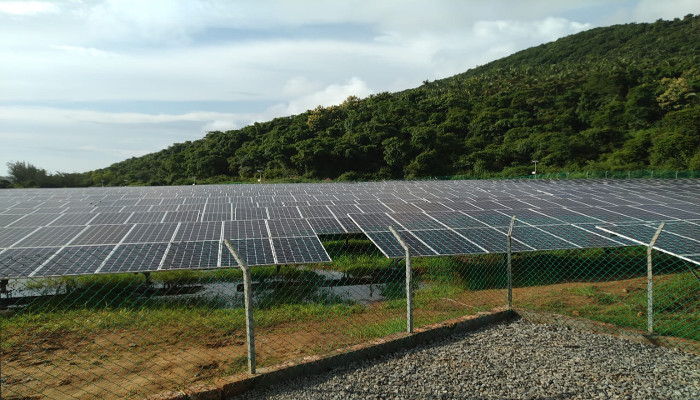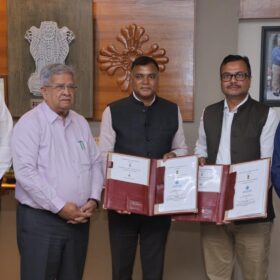The Indian Navy’s largest solar power plant has been commissioned at Ezhimala, in Kannur district of Kerala. Vice Admiral Anil Kumar Chawla launched plant operations via virtual conferencing.
The solar plant has an estimated life of 25 years. All components have been indigenously developed, including 9180 highly efficient monocrystalline solar panels employing the latest technology.
The project was executed by Kerala State Electronics Development Corporation Ltd (KELTRON).
“Despite heavy monsoons and restrictions due to Covid-19, all concerned agencies including Kerala State Electricity Board (KSEB) continued work on the project adhering to all guidelines/protocols against Covid-19 and executed the work in a timebound manner,” read a statement by the Ministry of Defense.
“The solar power plant project will help Naval Station Ezhimala reduce the carbon footprint and is one of the many initiatives undertaken by INA towards a clean and green environment. Surplus power generated will also feed the KSEB electricity grid.”
2 MW at Maharashtra Naval Station
Earlier this month, another 2 MW solar power plant was inaugurated at Naval Station Karanja in Uran city of Maharashtra.
Vice Admiral Ajit Kumar e-inaugurated this plant of the Western Naval Command.
“The plant comprises indigenously developed solar panels, tracking tables and inverters. The plant is grid interconnected, utilizing state-of-the-art single-axis sun-tracking technology with computerized monitoring and control,” read a statement by the Ministry of Defence.
This content is protected by copyright and may not be reused. If you want to cooperate with us and would like to reuse some of our content, please contact: editors@pv-magazine.com.









1 comment
By submitting this form you agree to pv magazine using your data for the purposes of publishing your comment.
Your personal data will only be disclosed or otherwise transmitted to third parties for the purposes of spam filtering or if this is necessary for technical maintenance of the website. Any other transfer to third parties will not take place unless this is justified on the basis of applicable data protection regulations or if pv magazine is legally obliged to do so.
You may revoke this consent at any time with effect for the future, in which case your personal data will be deleted immediately. Otherwise, your data will be deleted if pv magazine has processed your request or the purpose of data storage is fulfilled.
Further information on data privacy can be found in our Data Protection Policy.